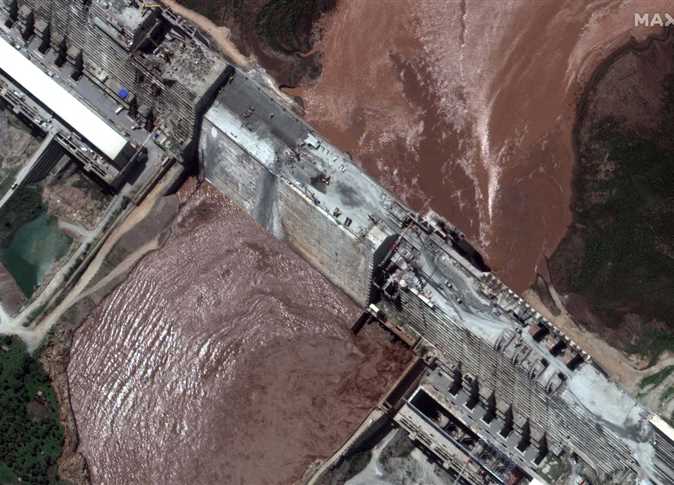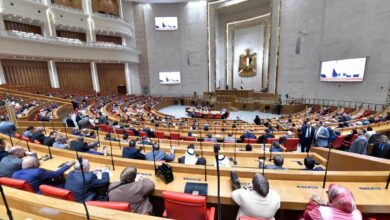
Egyptian Irrigation Minister Hani Sweilem said on Saturday that since the Grand Ethiopian Renaissance Dam (GERD) was built, filled and operated unilaterally this constitutes a violation of international law and is a fundamental breach of the Declaration of Principles agreement signed in 2015.
Sweilem’s statements came during an extraordinary meeting of the Ministerial Council of the Nile Basin Initiative in the Ethiopian capital, Addis Ababa.
The minister explained that Egypt has always dealt with the Ethiopian dam issue with restraint, and insisted on keeping the dispute within the tripartite framework between Egypt, Sudan and Ethiopia, without expanding it to include all Nile basin countries.
The Minister expressed Egypt’s objection to including a visit to the GERD in the “Nile Day” program, which is organized on February 22 of each year to mark the anniversary of the founding of the Nile Basin Initiative.
He warned that Ethiopia taking advantage of hosting this regional meeting to include this visit on the agenda will lead to involving the Nile Basin countries in the ongoing dispute over the GERD, negatively impact the unity of the member states and threaten regional cooperation.
Ethiopia now faces two options, Sweilem noted – either to adhere to the spirit of unity and spare the basin unnecessary tension, or to proceed with the visit and undermine the purpose of the gathering.
He stressed that Egypt, out of its firm commitment to the governing principles of the Nile Basin Initiative, affirms that preserving the principle of consensus is essential to the initiative and will achieve mutual benefit for all member states.
It will also benefit regional stability based on dialogue and mutual respect, he added.
He explained that Egypt has always been a major supporter of regional cooperation, pointing to its effective role in establishing the Nile Basin Initiative (NBI) in 1999 and providing significant financial, technical and political contributions over the first decade of the initiative’s life to enhance its role as a vital platform for dialogue and cooperation among the basin countries.
Sweilem pointed out that Egypt was forced in 2010 to suspend its participation in the initiative’s technical activities due to fundamental changes in the decision-making mechanism.
The minister stressed that the lives of over 107 million Egyptians are closely linked to the Nile River, stressing that it is not just a waterway but a lifeline for the basin countries, supporting their economies, ensuring their food security and overall well-being of their people.
Sustainable management of this shared resource is not just a necessity, he warned, but an inevitable responsibility to ensure the stability, prosperity and security of the entire region in the long-run.




